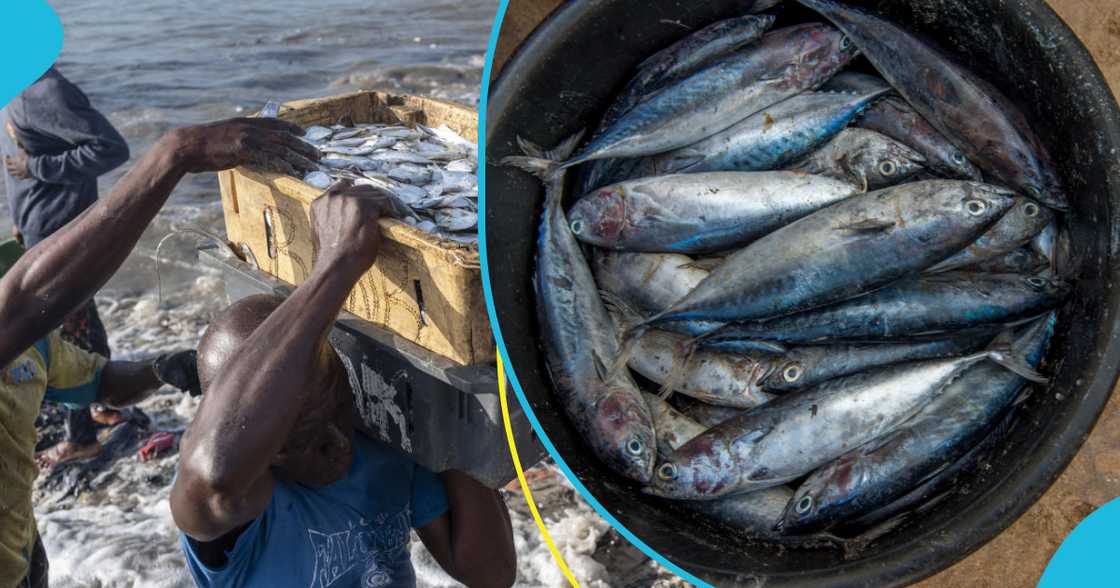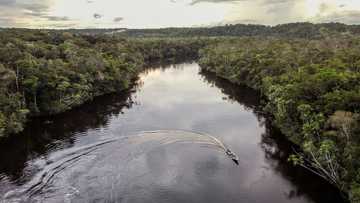Researcher Warns That Ghana Could Face Hunger, Malnutrition By 2030 Due To Low Fish Production
- A researcher has revealed that many Ghanaians will be at risk of hunger and malnutrition by 2030 due to low fish production
- Prof Berchie Asiedu said by 2030, Ghana's fish consumption would dramatically outweigh the country's fish production
- This, he said, would result in an acute shortage of fish and could potentially make the cheap protein pricier
The Dean of the School of Natural Resources at the University of Energy and Natural Resources (UENR) has warned that Ghana risks hunger and malnutrition by 2030 due to an anticipated drop in national fish production.
Professor Berchie Asiedu said that while the nation’s fish consumption is expected to hit 888,096 tonnes by 2030, total fish production would constitute only about 43% of the fish consumed.

Source: Getty Images
He said that while the current growth rate per capita fish is projected to decline from 28kg in 2018 to 23.9kg in 2030, fish consumption is expected to outweigh the national supply.
The professor was speaking at a research update session by the School of Natural Resources of UENR in Sunyani, themed, Managing our Natural Resources: Academia-Industry Partnership for Sustainable National Development.
He said the demand for fish has dramatically increased over the past few years as other sources of protein have become pricier.
Demand for fish, now the country's most consumed animal protein, has grown from 960,000 tonnes in 2010 to 1.1 million tonnes in 2020.
Within the same period, per capita fish consumption grew from 24.2kg to 27.9kg at a 1.6% per annum rate.
Researcher suggests solutions to the problem
To address the gap in fish production and consumption, Prof Berchie Asiedu has urged the government to formulate policies that would catalyse the development of the aquaculture industry in Ghana.
He said fish farming was the only way to prevent the projected hunger and malnutrition by 2030.
He also stated that by developing Ghana’s aquaculture industry, the government would have helped build the country's food resilience to climate change and its impact on food production.
Meanwhile, Hanson Kodzo Dzamefe, the Bono Regional Director of the Fisheries Commission, has also urged more Ghanaians to enter fish farming.
He said the sector posed a huge potential for job creation and food security for the country.
GSS projects Ghana’s population to double by 2050
YEN.com.gh reported that the Ghana Statistical Service released its population projections for the country from 2021 to 2050.
The service projects that the country's population will surpass 50 million by 2050. Accra's population density is also expected to deepen by 2030, reaching 2,143 persons per square kilometre.
Proofread by Edwina N.K Quarcoo, journalist and copy editor at YEN.com.gh.
PAY ATTENTION: Stay informed and follow us on Google News!
Source: YEN.com.gh



